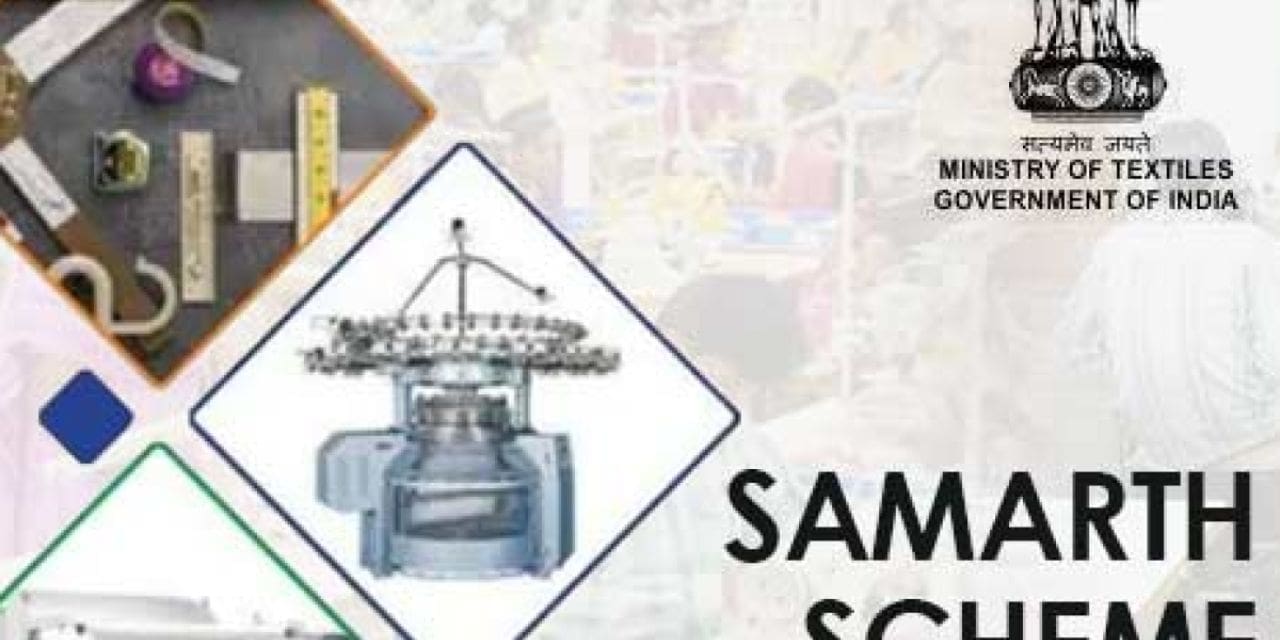The Textiles Ministry has requested proposals for the appointment of partners to implement training programmes from the textile industry, including various associations, in order to speed up enrollment in skilling programmes in the textile sector under the government’s flagship skilling scheme “Samarth”.
“So far, the Samarth scheme (started in 2020) has trained almost 1.5 lakh people, 86% of whom are women. At a press conference on Friday, Textiles Secretary Rachna Shah stated that over 70% of placements had occurred in the organised sector.
remarks COMMENTS
Implementing Partners (IPs), which include the textile industry and industry associations, state government organisations, and sectoral organisations of the ministry of textiles like DC/Handloom, DC/Handicrafts, and Central Silk Board, carry out the programme.
Samarth contains ingredients that Aadhaar Enabled Biometric Attendance System (AEBAS), Training of Trainers (ToT), CCTV recording of the training programme, dedicated call centre with helpline number, mobile app, web-based Management Information System (MIS), on-line monitoring of the training process, etc. are examples of advanced features. Dashboard data and information broken down by States, Districts, and Training Centers are available to the general public.
The following are the main methods/procedures used in the scheme’s implementation: According to the protocol approved for each course under the scheme, Training Centers nominated by the implementing partners must be physically validated by designated Government authorities to ensure they have the necessary infrastructure.
In addition, the programme has implemented a total of 184 courses that are in line with the National Skill Qualification Framework (NSQF) in a variety of textile segments, including traditional industries like handloom and handicrafts. to traditional industries like clothing to cutting-edge industries like technical textiles.
A complete digital solution is also available for simple setup and monitoring. Employment linkage is required in courses offered by the organised textile sector, with placement requirements of 70% for entry-level positions and 90% for upskilling programmes. There is also a smartphone app that uses time and location-tagged photos to physically verify the training facilities.
A QR code enabled e-certificate and third party assessment trainees have also been operationalized for this purpose. The trainers are also duly accredited through the Training of Trainers (ToT) (Online & Offline mode) programme.
wage reimbursement for traditional sector courses taken by Ministry sectoral organisations. Twelve Central / State Government Agencies, three, and 116 Textile Industries / Industry Organizations have cooperated with the Ministry. Organizations in the ministry’s sector that carry out training initiatives under Samarth. The programme serves all societal segments, including SC, ST, and other marginalised groups, and has spread to 28 States and 6 Union territories of the nation. 1.5 lakh of the 3.47 lakh beneficiaries who were intended to receive training have already received it. More than 85% of the program’s recipients who have received training thus far are women. More than 70% of the beneficiaries who took courses in the organised sector were placed.
The Ministry has requested ideas for empanelment from the textile industry and industrial organisations associated with the textile sector in order to diversify the panel of implementing partners. The application portal is accessible until 14 March 2023.

